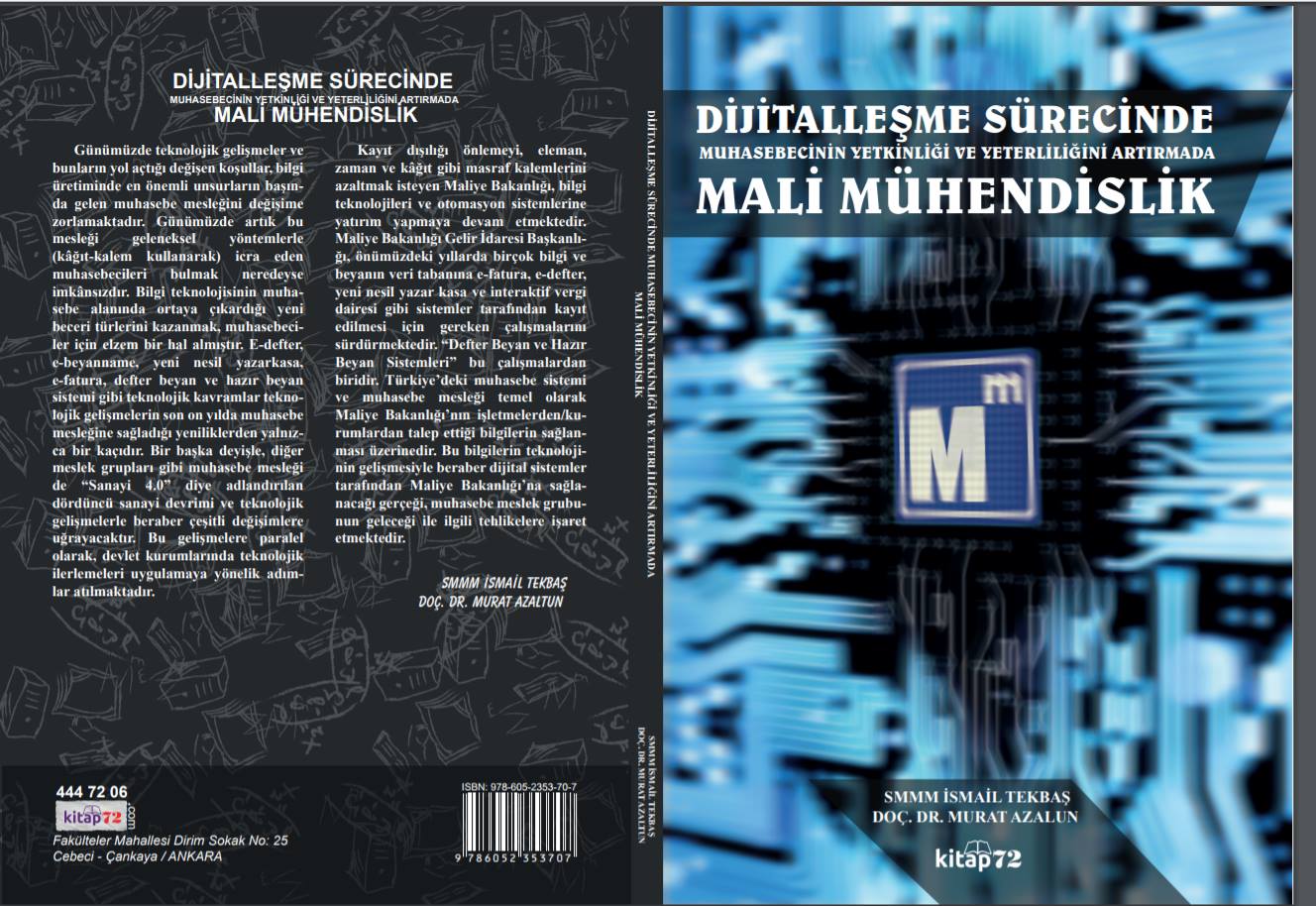DIGITAL ACCOUNTING LITERACY
With the advancements
seen in digitalization and technology, the individuals have started to
reconstruct and redesign many areas like the social life and the functioning of
occupations. Adaptance to technology and digital systems have become inevitable
in our age. Just like any other profession, the accounting profession has also
taken its own share of this process of change and transformation. In parallel
with these changes, several e-systems with brand new rules have emerged in the
accounting profession. The purpose of this study is to reveal out the need for “Digital
Accounting Literacy” to ensure that
accounting staff use digital systems in an accurate, effective and efficient
manner.
 Phenomenology research
pattern was used in this qualitative research. The data were collected by
observations and document reviews. A SWOT analysis was made based on the
literature and the developments experienced in the profession. Emphasis was
given to need for digital accounting literacy, its benefits and potential risks
to help particularly the accounting staff to use digital systems in a rational
and proper manner.
Phenomenology research
pattern was used in this qualitative research. The data were collected by
observations and document reviews. A SWOT analysis was made based on the
literature and the developments experienced in the profession. Emphasis was
given to need for digital accounting literacy, its benefits and potential risks
to help particularly the accounting staff to use digital systems in a rational
and proper manner.
Digital accounting
literacy means that; "The members of the accounting
profession have acquired technological competency to be able to use their
accounting knowledge in digital systems in a proper, effective and efficient
manner". Pieces of training on digital accounting literacy
aim to help the accounting staff acquire technological competency to be able to
use digital systems properly, to access accurate information and to use
technology in management and learning-teaching processes.
Some of the potential benefits and threats of
Digital Accounting Literacy are as follows:
·
It helps the accounting
staff acquire the ability to solve problems, to use the data, to inquire,
manage and make a critical analysis of digital systems.
·
It provides the
opportunity to train accounting staff who use digital systems properly, solve
digital system problems and make rational evaluations in this regard
·
It helps the accounting
staff acquire the ability to read, understand, use and manage the data on
digital systems
·
Inadequacy of
infrastructure and resources in application and training
In conclusion, digital accounting literacy will
help the accounting staff get more easily adapted to digital systems. It will
help elimination of the risks that accounting staff will suffer from
incompatibility in terms of the e-transformation experienced in the accounting
profession, fear making mistakes or use digital systems in an inefficient
manner.
.jpg)







Yorumlar
Yorum Gönder